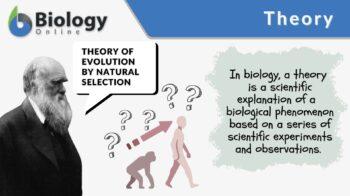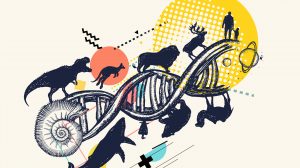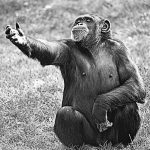
Theory
n., plural: theories
[ˈθɪɚ.i]
Definition: a scientific explanation of a phenomenon based on a concurring set of scientific data from various independent studies
Table of Contents
Theory Definition
In science, a theory is a scientific explanation of a phenomenon. By scientific, it means it is an explanation or expectation based on a body of facts that have been repeatedly confirmed through methodical observations and experiments. For instance, in mathematics, a mathematical theory attempts to describe a particular class of constructs and includes axioms, theorems, examples, etc. In biology, a theory is a widely accepted explanation of a biological phenomenon based on sound evidence from rigorous empirical experiments and scientific observations. An example of a popular biological theory is Charles Darwin’s Theory of Evolution by Natural Selection. This theory attempts to explain evolution where natural selection is one of the vital mechanisms that drive organisms to progressively change over successive generations.
Etymology: from Latin theōria, Greek theōría, meaning “a viewing” or “contemplating”.
Compare: hypothesis
Watch this vid about scientific theory:
Theory vs. Hypothesis
The term theory is generally used to imply speculation or assumption that has not been fully verified or has relatively limited proof. However, in science, an unproven idea or mere theoretical speculation is regarded as a hypothesis rather than a scientific theory.
A scientific hypothesis is a tentative explanation for a phenomenon and is yet to be tested through a scientific and methodological experiment. If it is confirmed by repetitive investigations and supports various independent studies, then, the hypothesis will likely be widely accepted by the scientific community, and through time — sans any scientific proof to debunk it — becomes a theory.
Theory vs. Law
Both scientific theories and laws are based on facts and are accepted by the scientific community as the truth. And both are used to make predictions of future events. However, while a scientific theory tells us why and how a phenomenon happens, a scientific law will tell us what to expect in a particular situation, especially through a mathematical equation. (MasterClass, 2020) Therefore, scientific theories and laws are essential in understanding things, particularly to grasp why they happen as they do and to reliably and factually predict results in a given situation or condition.
In biology, we have Mendel’s Laws that can be used as a basis for predicting the genotypes and the phenotypes of the offspring if it conforms to the Mendelian inheritance. Gregor Mendel formulated the Laws of heredity based on the patterns of trait variations, which he noticed when he conducted a series of breeding experiments on garden pea plants. Initially, his principles were not widely accepted until his works were rediscovered and reverified. Now, his principles on heredity are regarded as laws.
Although scientific theories and laws are accepted as scientific facts, they can be disproven when new evidence surfaces.
Mendel’s Laws, for instance, do not apply to some conditions, such as in the case of non-Mendelian inheritance. Codominance, incomplete dominance, and extranuclear inheritance are just some of the many examples of biological inheritance where Mendel’s Laws on heredity do not apply.
References
- MasterClass. (2020). Theory vs. Law: Basics of the Scientific Method. MasterClass; MasterClass. https://www.masterclass.com/articles/theory-vs-law-basics-of-the-scientific-method#4-examples-of-scientific-theories









